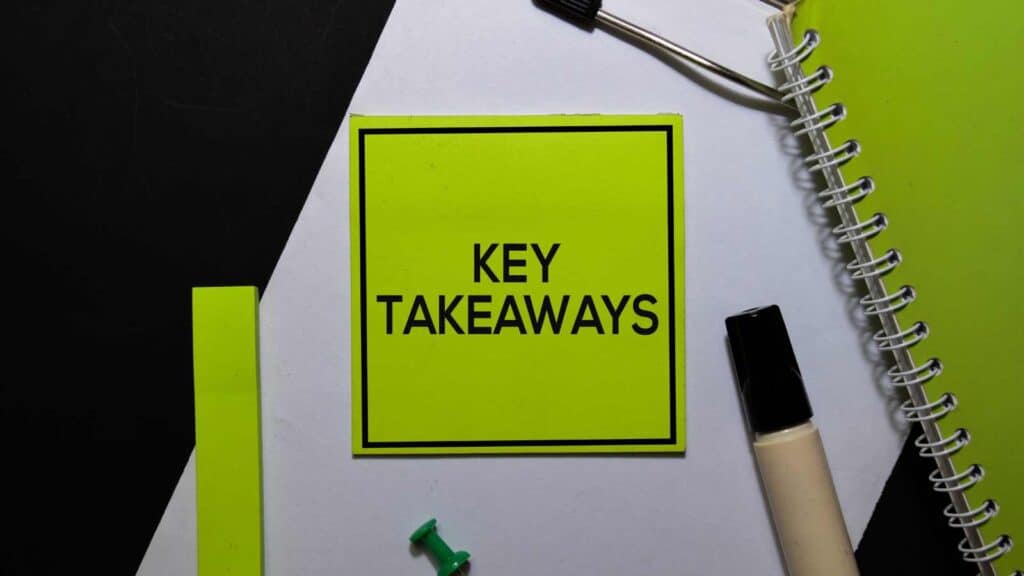12 Things Intelligent People Never Complain About
Complaining is a profoundly human behavior — but surprisingly common. Psychology Today reports that, on average, people complain about 4 times per day, and notably, 75% of such complaints are “non-instrumental,” meaning they’re not intended to resolve any problem but rather to vent frustration.
But intelligent people tend to complain far less, not merely because they are more satisfied, but because they often exhibit higher emotional intelligence (EI) and strong self-efficacy. Monash University Research found that individuals with higher EI were more likely to use active coping strategies and less likely to complain through denial.
Seeing setbacks as data, discomfort as growth, and criticism as insight, intelligent individuals channel their emotional and cognitive capacities into constructive action rather than passive venting. Here are 12 things intelligent people rarely complain about, revealing the mindset and psychological strengths behind their behavior.
Other People’s Success

Smart people seldom complain about others’ achievements. Instead, they adopt an abundance mindset, believing that success is not a zero-sum game. This attitude ties into self-esteem and social comparison theory, where high self-worth reduces the impulse to envy.
People with higher emotional intelligence (EI) are less likely to engage in counterproductive behaviors, such as hostility or resentment, at work. A study in the European Business & Management journal found a negative correlation between emotional intelligence and counterproductive work behavior, suggesting that emotionally intelligent individuals channel their responses in healthier, more constructive ways.
Their Past

Intelligent people often avoid complaining about past mistakes or regrets. Rather than ruminating, they accept what has already happened and focus on what they can influence now. The forward-oriented mindset aligns with self-regulation and emotional maturity.
Research by PubMed on EI also shows that individuals with strong emotional management skills are better at adapting to stress and regulating their feelings about past events. Letting go of the past, they free themselves to act in the present.
Things They Can Control

One defining trait of intelligent individuals is agency—the belief that they can influence their environment. They don’t waste time complaining; they take action. This orientation is deeply tied to self-efficacy, the belief in one’s own ability to succeed in specific situations.
In a classic psychological experiment, high self-efficacy (coupled with a sense of control) led to greater tolerance of discomfort and better performance under stress. When people believe they can influence outcomes, they are more likely to confront problems proactively.
Things They Cannot Control

Intelligent people also rarely complain about things outside their control. Rather than resist, they conserve emotional energy by accepting external realities where resistance is futile. This approach reflects resilience: the capacity to adapt psychologically to stress and change.
Psychologist Ann S. Masten, a leading researcher on resilience, emphasizes that a sense of mastery and perceived control are central to bouncing back from adversity. Distinguishing controllable from uncontrollable elements, they invest their energy more effectively.
Hard Work

Far from complaining about effort, intelligent people embrace hard work and persistence. They understand that mastery requires deliberate effort and sustained discipline. Their mindset aligns with the personality trait known as grit, defined as perseverance and passion for long-term goals.
A combination of passion and perseverance—not just effort alone—strongly predicts performance. For intelligent individuals, hard work is not burdensome; it’s part of the journey.
Failure

Instead of lamenting failure, intelligent people treat it as data—valuable feedback to iterate and improve. This growth-oriented perspective is tied both to grit and to a growth mindset, the belief that abilities can develop over time.
A study of Chilean students found that those with a growth mindset achieved higher academic performance, even under the stress of economic disadvantage. They don’t see failure as a sign of incompetence, but as a signal to learn.
Change

Change is inevitable, and intelligent people rarely complain about it. Instead, they adapt, using flexibility and learning agility to navigate transitions. Their emotional intelligence supports this adaptability: they manage anxiety, reframe uncertainty, and maintain equilibrium.
Emotionally intelligent individuals cope better with stress by using active, problem-focused coping strategies rather than avoidance. Their mindset shifts not as a threat but as an opportunity.
Criticism

Smart individuals don’t ignore criticism; they use it. They understand that feedback, even when negative, is a powerful source of information. Their high EI enables them to listen without becoming defensive, extract value from critique, and adjust.
Emotional intelligence is strongly associated with feedback-seeking behavior. A study among medical students in India found that those with higher EI were more motivated to seek feedback and saw it as a tool for growth. Rather than complaining, they reflect and improve.
Boring or Repetitive Tasks

Many intelligent people recognize the importance of routine and repetition. They understand that mundane tasks often underpin long-term success. Instead of complaining, they use repetition to build consistency and proficiency.
This is a hallmark of disciplined behavior: they accept that meaningful growth often happens through routine.
Unfairness They Cannot Change

When faced with unfair systems or situations beyond their immediate control, intelligent people may acknowledge the injustice, but they rarely dwell on it in unproductive ways.
Instead, they channel their resilience into advocacy, strategic planning, or innovation. Their emotional maturity and problem-focused mindset enable them to navigate unfairness more constructively than through complaint alone.
Other People’s Opinions

Intelligent individuals often have a strong internal locus of evaluation. They don’t complain about others’ judgments because they derive their self-worth from internal measures, not external validation. This is closely tied to identity clarity and self-concept: when you understand yourself deeply, outside opinions carry less weight.
Emotional intelligence and self-awareness help in grounding their self-perception, making them less reactive to social pressure.
Temporary Discomfort

Pain, discomfort, and uncertainty are part of growth, and intelligent people don’t shy away from them. Because they possess resilience and a high threshold for emotional discomfort, they tolerate transient pain in exchange for long-term gains.
Perceived control and self-efficacy significantly reduce subjective pain and enhance persistence under challenging tasks. For the intelligent mind, short-term discomfort becomes a necessary step toward progress.
Key Takeaways

Intelligence is not just about high IQ or cleverness; it’s equally about how one deals with challenges, feedback, and the ups and downs of life. Not complaining about the 12 things listed above, intelligent individuals demonstrate that they value emotional mastery, personal agency, and growth-oriented thinking. These are not just traits of smart people—they are strategies for sustained success and psychological resilience.
If you want to cultivate these habits in your own life, consider building your emotional intelligence, strengthening self-efficacy through small wins, embracing a growth mindset, and practicing resilience in the face of discomfort. Over time, you may also find yourself complaining less—and acting more.
Disclosure line: This article was developed with the assistance of AI and was subsequently reviewed, revised, and approved by our editorial team.
19 Phrases People Who Lack Emotional Intelligence Use Without Realizing Their Effect

19 Phrases People Who Lack Emotional Intelligence Use Without Realizing Their Effect
Emotional intelligence plays a vital role in shaping our personality, empowering us to navigate social interactions and foster meaningful relationships with finesse and effectiveness. It involves being aware of our emotions, managing them, and understanding the emotions of others.
16 Telltale Signs You Are Smarter Than Your Manager At Work

16 Telltale Signs You Are Smarter Than Your Manager At Work
While respecting our superiors and their experience is essential, sometimes it’s hard to deny that we may be more intelligent than them. So, how can you tell if you’re smarter than your manager? Here are 15 telltale signs to look out for.







